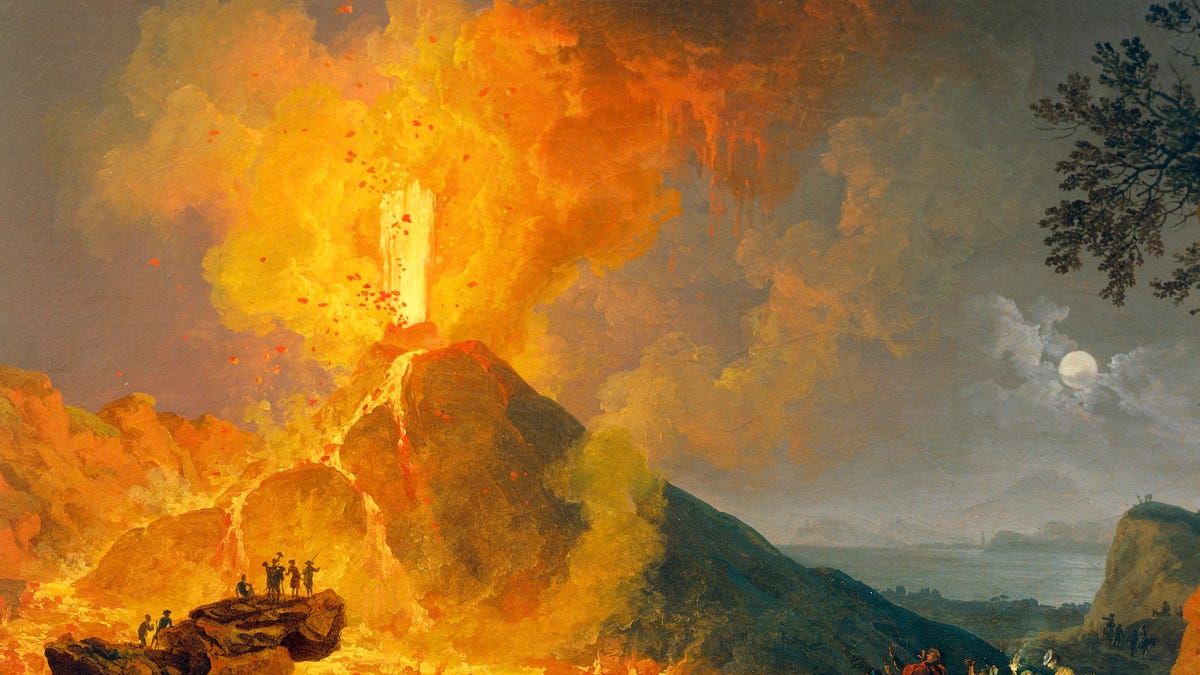Scientists say Mount Vesuvius made people's heads explode
New research shows the people of Herculaneum near Mount Vesuvius died when their blood boiled and their skulls fractured.

A team of archaeologists found the eruption of Mount Vesuvius burned bodies quicker than a crematorium.
When you die, you want to go quickly. But maybe not as quickly as the people killed by Mount Vesuvius.
The scientists say skull fractures on skeletons recovered from Herculaneum show evidence of "skull explosion".
According to a new research paper released by a team of Italian archaeologists, the eruption of Mount Vesuvius in AD 79 generated such extreme heat that it caused victims' skulls to explode, their blood to boil, and their muscles, flesh and brains to be rapidly replaced with ash.
Conducting new investigations on the skeletal remains of those killed in Herculaneum, a town 4 miles from Mount Vesuvius that was obliterated by the volcanic eruption, the scientists gained more insights into how the townsfolk died.
It was quick, but it wasn't pretty.
The team found evidence of "rapid vaporization of body fluids" and "boiling blood" as well as fractures, similar to those found in cremated bones, that indicated victims experienced "recurrent skull explosion."
They also found evidence of the "very rapid replacement of flesh by ash."
Bodies exposed to extreme heat are often found in a so-called "pugilistic attitude," where limbs curl in due to contracting muscle to give the body position of a fighting boxer. But according to the researchers, the skeletal remains in Herculaneum indicate that their muscles "disappeared" faster than bodies burning in a crematorium.
It was this combination of bone cracking, skull bursting, blood boiling and flesh turning to ash led that the researchers say led to "instant death."
NASA turns 60: The space agency has taken humanity farther than anyone else, and it has plans to go further.
Special Reports: CNET's in-depth features in one place.

